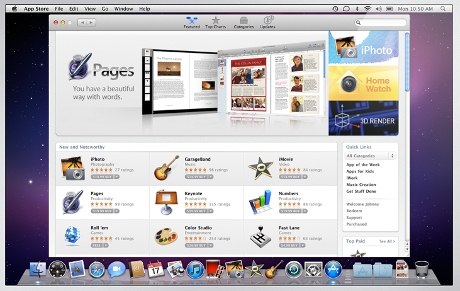Steve Jobs' service oriented architecture

Note: This post originally was published in October 2010. As we look back at Steve Jobs' incredible contributions to the computing world, it's notable that he also pursued a "service oriented architecture" -- perhaps the way it should have been done all along.
It will be highly tuned and well governed. All applications/services are sharable, and must pass a rigorous vetting before they are placed in the directory. A chargeback mechanism is in place to cover development costs, and provide incentives to put more applications/services up there -- and keep ramping up innovation as well.
What a great service oriented architecture.
We're talking about Apple Computer's App Stores, of course. ZDNet colleague Jason Perlow says the store is part of a "fully managed, locked down next-generation Apple end-user experience" that will tightly manage software distribution.
Has Steve Jobs captured the essence of the SOA vision that many have been pursuing for the past decade for their enterprises? Well, sort of. There is, after all, the fact that Apple App Stores are tethered to locked-down proprietary hardware and OS stacks, the very antithesis of SOA. No platform and vendor independence anywhere in sight here.
Would a more open, platform-independent approach of the app store concept work at the enterprise level? As noted in previous posts here, Steve Jobs' business model presents an interesting and organized way to acquire and monetize services and content. In the process, an app store supports an ecosystem of developers and creators, but acts as a governance mechanism to keep out the malicious, duplicate and substandard stuff.
Again, the Apple App Store is not pure SOA by any means. But it is a compelling architecture. Maybe the 'app store' concept is something SOA proponents have been doing all along anyway. But Jobs seems to have put it all into one clean, efficient mode. Perhaps that's one way to explain it to the business in a way they'll immediately understand.
For more discussion on the rise and implications of enterprise app stores, check out this intriguing podcast panel discussion hosted and posted by ZDNet colleague Dana Gardner. It looks like Jobs' vision did sink deep into the heart of enterprises.
